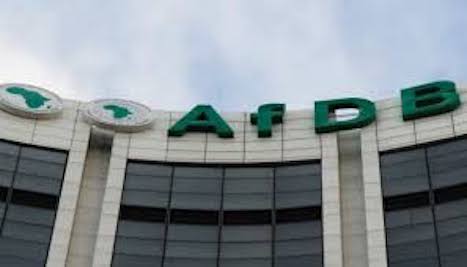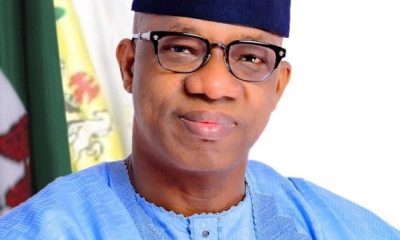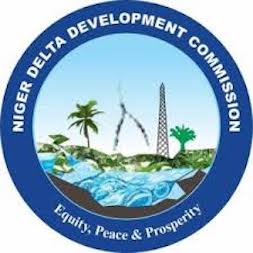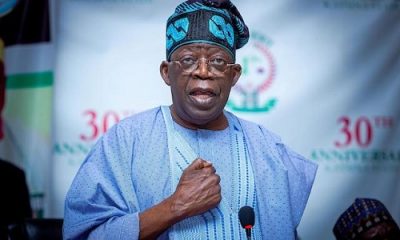BUSINESS
AfDB to Provide $12.5bn for Africa Adaptation Programme
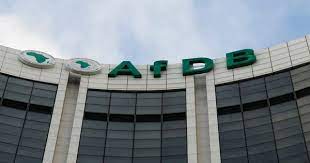
The President of the African Development Bank (AfDB) Group, Dr Akinwumi Adesina, says the bank will provide 12.5 billion dollars to support the Africa Adaptation Acceleration Programme (AAA-P).
The AfDB president disclosed this via his verified twitter handle @akin_adesina.
The AAA-P is Africa’s own programme, supported by African Heads of State, to mobilise more resources for climate change, to advance the objectives of the African Adaptation Initiative.
The AfDB and the Global Center on Adaptation (GCA) are mobilising 25 billion dollars for this programme to which the bank committed 12.5 billion dollars.
“The Africa Adaptation Acceleration Program (AAA-P) is the largest effort globally for adaptation.
But we need money.“The African Development Bank Group put down 12.5 billion dollars out of 25 billion dollars so we are not begging.
“We are saying we didn’t (create) the problem. We have come to the conversation with commitment, meet us halfway,,” the AfDB president said.
Speaking during the recently concluded Africa Climate Adaptation Summit held in Rotterdam, Netherlands, Adesina said Africa does not contribute more than three per cent of global greenhouse gas emissions but suffered disproportionately from its negative consequences.
“Africa does not have the resources to tackle climate change. The continent receives only three per cent of global climate financing.
“If this trend continues, Africa’s climate financing gap will reach 100 billion dollars to 127 billion dollars per year through 2030.
“The current climate financing architecture is not meeting the needs of Africa.
“New estimates by the African Economic Outlook of the African Development Bank shows that Africa will need between 1.3 and 1.6 trillion dollars between 2020 to 2030, or 118 billion dollars to 145 billion dollars annually, to implement its commitments to the Paris Agreement and its nationally determined contributions.”
According to the statement, the programme is an initiative of the AfDB and the GCA which aims to mobilise 25 billion dollars, over five years, to accelerate and scale climate adaptation action across the continent.
The AAA-P was endorsed at the Leaders’ Dialogue on the Africa COVID19-Climate Emergency in April 2021 which was the largest gathering ever of African Heads of State and Government solely focused on adaptation.
In Glasgow, the Africa Adaptation Acceleration Summit, held as part of the COP26 World Leaders Summit, saw several global leaders make commitments to support adaptation in Africa, including through the AAA-P.
The UK Government announced an important commitment of 20 million pounds to support the upstream work of the AAA-P.
Also, the AAA-P would be implemented through two mechanisms: First, an AAA-P Upstream Financing Facility, housed at the GCA, to support the evidence-based knowledge, project design and preparation, and policy work needed for the success of AAA-P operations.
The upstream facility provided resources to strengthen adaptation and resilience components into multilateral development bank projects in the pipeline.
The facility, which also needed capitalisation of 250 million dollars, would help to mainstream solutions on climate adaptation.
Second, an AAA-P Downstream Investment Facility, to be housed at the AfDB, would be developed under the direct leadership of the president of the bank.
The facility was expected to use the resources to unlock financing from African national governments, impact investors, foundations, and other innovative sources, such as resilience bonds and debt for climate adaptation swaps, in a coordinated programme.
The downstream facility, to be capitalised at 1.75 billion dollars, would help leverage additional adaptation finance by a factor of four times, to deliver seven billion dollars of additional adaptation finance.
The AAA-P upstream facility at the GCA has helped to generate three billion dollars of mainstream climate adaptation investments by AfDB, from agriculture, to energy, transport, water, and sanitation. (NAN)
Economy
Trade Tensions: Global Economy Stands at Fragile Turning Point -UN
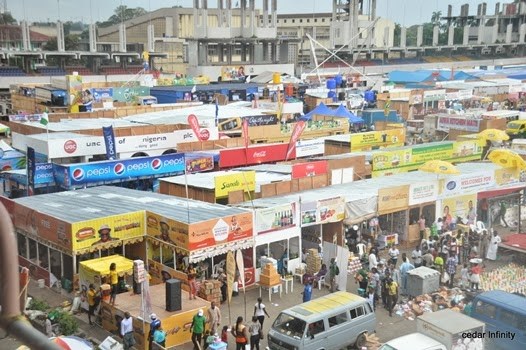
The UN Department of Economic and Social Affairs (UN DESA) has said that the global economy stands at a fragile turning point amid escalating trade tensions and growing policy uncertainties.UN DESA, in a report published on Thursday, stated that tariff-driven price pressures were adding to inflation risks, leaving trade-dependent economies particularly vulnerable.
It stated that higher tariffs and shifting trade policies were threatening to disrupt global supply chains, raise production costs, and delay key investment decisions – all of this weakening the prospects for global growth. The economic slowdown is widespread, affecting both developed and developing economies around the world, according to the report.For instance, in the United States, growth is projected to slow “significantly”, as higher tariffs and policy uncertainty are expected to weigh on private investment and consumer spending.Several major developing economies, including Brazil and Mexico, are also experiencing downward revisions in their growth forecasts.China’s economy is expected to grow by 4.6 per cent this year, down from 5.0 per cent in 2024. This slowdown reflects a weakening in consumer confidence, disruptions in export-driven manufacturing, and ongoing challenges in the Chinese property sector.By early 2025, inflation had exceeded pre-pandemic averages in two-thirds of countries worldwide, with more than 20 developing economies experiencing double-digit inflation rates.This comes despite global headline inflation easing between 2023 and 2024.Food inflation remained especially high in Africa, and in South and Western Asia, averaging above six per cent. This continues to hit low-income households hardest.Rising trade barriers and climate-related shocks are further driving up inflation, highlighting the urgent need for coordinated policies to stabilise prices and protect the most vulnerable populations.“The tariff shock risks hitting vulnerable developing countries hard,” Li Junhua, UN Under-Secretary-General for Economic and Social Affairs, said in a statement.As central banks try to balance the need to control inflation with efforts to support weakening economies, many governments – particularly in developing countries – have limited fiscal space. This makes it more difficult for them to respond effectively to the economic slowdown.For many developing countries, this challenging economic outlook threatens efforts to create jobs, reduce poverty, and tackle inequality, the report underlines. (NAN)Agriculture
NNPC Foundation Reiterates Commitment to Ensuring Food Security

The Nigerian National Petroleum Corporation (NNPC) Foundation has renewed its commitment to ensuring food security in the country.
Mrs Emmanuella Arukwe, Managing Director, NNPC Foundation, said this on Wednesday in her remarks during the training of vulnerable farmers in Akwa Ibom.
Arukwe said that 6, 000 farmers across the country would be trained on modern farming methods and market access strategies to boost food production in the country.
Arukwe, who was represented by Dr Bala David, Executive Director, Programme Development and Coordinator, NNPC Foundation, added that the Foundation was dedicated to implementing impactful programmes that aligned with national priorities.
She said that more than 500 farmers in Akwa Ibom were trained by the NNPC Ltd Agricultural Training Initiative for Vulnerable Farmers on modern methods and strategies to boost food production.
Arukwe added that the farmers were drawn from the state’s 31 local government areas to participate in the training to equip them with techniques and market access strategies to add value to their businesses.
“This programme is a testament to our unwavering commitment to food security, economic empowerment and national development.
“As the corporate social responsibility arm of NNPC Ltd, the Foundation is dedicated to implementing impactful programmes that align with national priorities.
“This initiative is part of our broader efforts to support the Federal Government’s agricultural transformation agenda, which seeks to enhance food security, increase productivity, and improve the livelihoods of smallholder farmers.
“Our goal is to equip every participant with the tools, knowledge, and resources needed to transition from subsistence farming to commercial-scale production,” Arukwe said.
In her remarks, Dr Offiong Offor, Commissioner for Agriculture and Rural Development, Akwa Ibom, thanked NNPC for the initiative to equip farmers with knowledge on modern farming.
Offor, represented by Dr Atim Okoko, Permanent Secretary, Ministry of Agriculture and Rural Development, said that a nation that trained farmers was a nation that would not go hungry.
“I want to express the state government’s appreciation to NNPC for mounting this laudable programme.
“A nation that starts to train farmers, a nation that starts to look at farmers will never go hungry.
“In this season that our President Bola Tinubu has come up with his Renewed Hope Agenda, everything is to end hunger in Nigeria,” Offor said.
The commissioner added that the programme came to complement what the state government was doing to ensure food sufficiency.
Responding on behalf of farmers, Mr Bassey Inwang, State Chairman, All Farmers Association of Nigeria (AFAN) said farmers in the state were so grateful for the training.
Inwang said the training would boost food production in the state, as the farmers would apply the knowledge gained on their farms for increase in yields.
He said, “We want to tell you that we will not take this training for granted, we will apply it properly on our farms.” (NAN)
Agriculture
FG Trains 120 Youths On Poultry Farming In Plateau
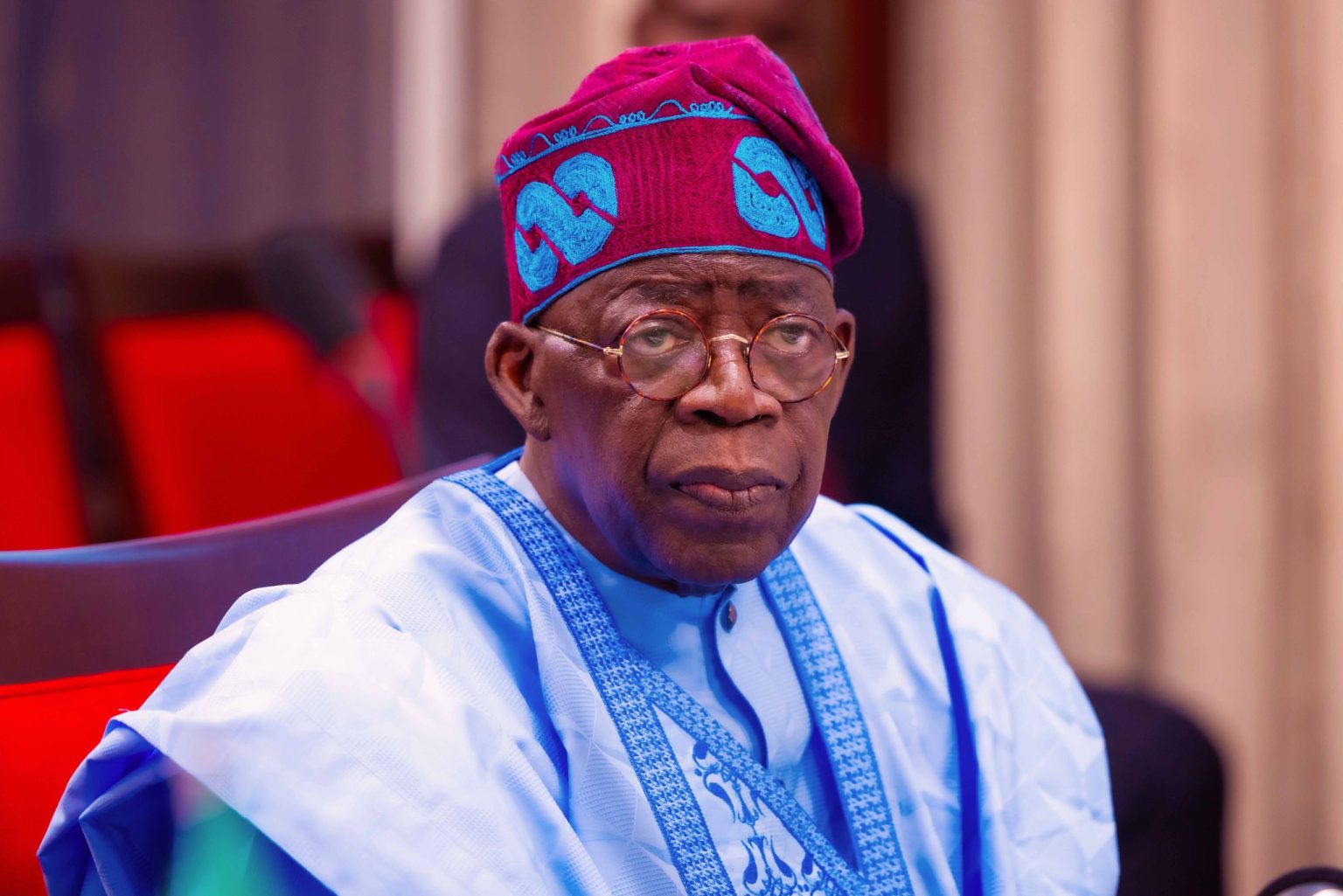
The Federal Government has commenced free six months training for 120 Plateau youths on poultry farming.
The training is through the National Youth Skills Acquisition Fund (NYESAF), under the Innovation, Development and Effectiveness in the Acquisition of Skills (IDEAS) Project.
Dr Daniel Jarafu, Chief Executive Officer (CEO) VetVille Nigeria Limited, one of federal government’s training service providers in charge of the training, said this on Saturday in Jos, at the flagoff of the programme.
Jarafu, said the project was a deliberate effort by the federal government to empower youths with skills that would make them skillful, self sufficient, employers of labour and in turn, boost economic growth of the nation.
According to him, the six months training is segmented into three months theoretical and three months practical aspects .
He further explained that at the end of the programme the trainees would sit for the National Skills Qualifications (NSQs) examination to earn a national certification which would be equivalent to certification earned in the formal education system.
Earlier, Prof. Arhyel Balami, the Guest of Honour, said the initiative by the federal government was highly laudable as it would lead to the empowerment of youths with hands on agricultural skills that would make them productive with sustainable livelihoods.
Balami, urged the trainees to make the best use of the training by being diligent, showing up and paying rapt attention during the course of the training.
The News Agency of Nigeria (NAN) reports that NYESAF is to train 75,000 youths nationwide, with the aim of enhancing job creation, entrepreneurship, and economic independence among young Nigerians.
NAN further reports that initiative underscores the government’s commitment to equipping youths with essential skills to drive economic growth and self-sufficiency



